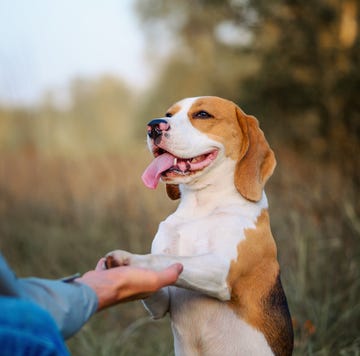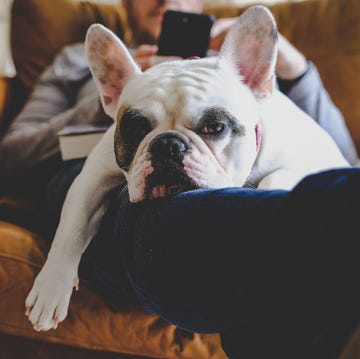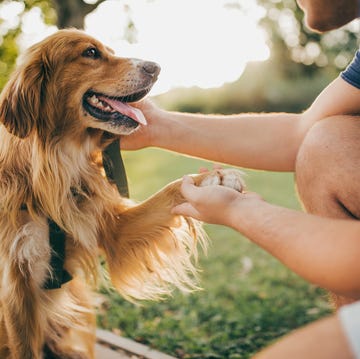It’s a familiar sight: Your dog curled up on the couch, licking or chewing away at their paws. While it might look like nothing more than grooming, many pet parents may wonder, "Why do dogs lick their paws?" and whether it’s ever a cause for concern.
“Dogs lick their paws for a variety of reasons, ranging from normal grooming behavior to anxiety to a medical condition, such as allergies,” says Dr. Liza Cahn, veterinarian at Embrace Pet Insurance. “Occasional paw licking is completely normal; however, if this is a new behavior or if they are licking their paws excessively, there may be underlying causes.” So, how do you know when it’s harmless and when it’s time to call the vet? Let’s look at some of the most common reasons dogs lick their paws and what it might mean for your pup’s health.
Should I be worried if my dog keeps licking his paws?
An occasional lick here and there is usually nothing to stress about. But if your pup is licking their paws constantly, or if you notice redness, swelling, or fur that’s stained a rusty color from saliva, it could be a sign of something more serious.
“A vet should be consulted if paw licking occurs frequently, interferes with daily activities, or leads to secondary issues, such as infection,” Dr. Cahn explains. She recommends taking a closer look—check the paw pads, nails, and the areas between the toes for any sign of injury or irritation. If something doesn’t look right, it’s best to get your dog evaluated.
What is your dog trying to tell you when they lick their paws?
Dogs don’t have words, so behaviors like paw licking are one of the ways they communicate that something is going on. “All dogs lick their paws occasionally, but if paw licking is new or excessive, your dog is trying to communicate that something is up,” says Dr. Cahn. The message could be as simple as boredom or anxiety, or it could point to a medical issue like allergies, infection, or even pain in the joints.
The key is to watch for patterns in the behavior. For example, is it one paw or all four? Is it happening at certain times of day, and are there other symptoms like limping or scratching elsewhere? These details can help your vet figure out what your dog might be trying to tell you.
What can I give my dog for licking paws?
Because paw licking can have so many causes, there’s no one-size-fits-all treatment. “If your dog is licking their paws excessively due to a medical condition, your vet will come up with an individualized treatment plan,” Dr. Cahn explains. This usually starts with a full exam and might include diagnostic tests such as a diet trial to rule out food allergies or cytology to check for yeast or bacteria on the skin. Depending on the underlying cause, treatment could involve anything from antibiotics to clear up an infection, to surgical removal of a growth, to behavioral support if anxiety is the trigger.
For allergies, one of the most common culprits, treatment often means a combination of medications, consistent flea prevention, and changes at home to limit exposure to allergens. The bottom line? Before giving your dog anything, talk to your vet so the solution matches the actual problem.

Tierney McAfee is a freelance writer and Country Living and The Pioneer Woman contributor who covers entertainment, holiday & entertaining, food & drinks, design ideas, DIY, and more.














